About the Voting Rights Project
About this project
“Who Can Vote?” is the 2012 project of News21, a national investigative reporting project funded by the Carnegie Corporation of New York and the John S. and James L. Knight Foundation.
The goal of the program, headquartered at the Walter Cronkite School of Journalism and Mass Communication at Arizona State University, is to produce in-depth, innovative and interactive investigative journalism on issues of national importance.
The voting rights project was produced by 24 students from 11 universities across the country under the direction of journalism professionals. The Ethics and Excellence in Journalism Foundation provided a grant supporting the work of six of the students, and the Hearst Foundations supported another three fellows.
The work began in January 2012 with a video-conferenced seminar on voting rights taught by Leonard Downie Jr., former executive editor of The Washington Post and Weil Family Professor of Journalism at the Cronkite School. The students heard from multiple experts, conducted interviews and did extensive research on voting and voting rights.
Starting in May, they participated in an intensive 10-week investigative reporting fellowship based out of a newsroom at the Cronkite School in downtown Phoenix. The fellows traveled to more than 40 cities, 21 states and one U.S. territory, conducted more than 1,000 interviews, requested thousands of public records and reviewed nearly 5,000 documents. Their most ambitious effort was to gather, organize and analyze all reported cases of election fraud in the U.S. since 2000, building the most comprehensive database of its kind.
Students, led by Nick Andersen and Annelise Russell, also developed an active online presence for the project over the summer. Andersen managed the News21 Twitter account, @WhoCanVote, tweeting more than 1,700 times and building an audience of more than 200 followers in 10 weeks. Russell coordinated a voting rights blog that posted more than 160 submissions, including daily news items, photos and updates on the project’s progress.
The finished project, launched just before the 2012 political conventions, consists of more than 20 in-depth reports and rich multimedia content that includes interactive databases and data visualizations, video profiles and photo galleries.
Major media partners that published all or part of the project include The Washington Post, NBC.com, National Public Radio, The Center for Public Integrity, The Philadelphia Inquirer, El Nuevo Herald, nonprofit investigative online sites affiliated with the Investigative News Network and New America Media, which represents ethnic media.
Based on an exhaustive public records search, the News21 analysis of voter fraud shows:
- Since 2000, while fraud has occurred, the number of cases is infinitesimal.
- In-person voter impersonation on Election Day, which prompted 37 state legislatures to enact or consider tough voter ID laws, is virtually non-existent. Only 10 such cases over more than a decade were reported.
- There is more fraud in absentee ballots and voter registration than any other category. The analysis shows 491 cases of absentee ballot fraud and 400 cases of registration fraud. A required photo ID at the polls would not have prevented these cases.
- Voters make a lot of mistakes, from people accidentally voting twice to voting in the wrong precinct. However, few cases reveal a coordinated effort to change election results.
- Election officials make a lot of mistakes, giving voters ballots when they’ve already voted, for instance. Election workers are often confused about voters’ eligibility requirements.
The News21 investigation also found:
- Photo ID laws and other new voting restrictions disproportionately affect minorities, students, the disabled and the elderly.
- State rules on voting by felons vary widely. In some states, felons can vote from prison; in other states felons may never regain the right to vote.
- More than half of the state bills proposing photo IDs originated from people affiliated with the conservative, pro-business American Legislative Exchange Council. Since the model photo ID legislation, known as ALEC’s 2009 Voter ID Act, 62 voter ID bills were introduced in state legislatures.
- Changes to Florida’s voting laws will reduce the state’s in-person, early voting timeframe. This includes the Sunday before Election Day, when African-American churches traditionally organized caravans of parishioners to polling places, known as “Souls to the Polls.”
- True the Vote, a Texas-based Tea Party initiative, has trained and dispatched election observers in at least 20 states. The growing national movement’s goal is to prevent voter fraud; opponents say it’s a way to intimidate eligible voters, particularly minorities.
- Once-neutral secretary of state offices are becoming increasingly politicized as these office holders join the political debate over voting access.
Corrections Policy
News21 is committed to accuracy and welcomes feedback on the accuracy of packages from sources and members of the public. Staff members and editors will correct errors of fact and clarify confusing information promptly and in a straightforward manner.
We will note significant corrections and clarifications within packages. We will correct minor spelling, punctuation and grammar errors without notice.
Carnegie-Knight Student Reporters

Andersen is a graduate of the University of North Carolina-Chapel Hill, where he majored in multimedia journalism and American history. He is a four-year veteran of UNC’s award-winning newspaper, The Daily Tar Heel, where he was an editor, senior writer and columnist. In 2011, Andersen was an arts and social media intern at The Wall Street Journal. He coordinated social media, wrote a daily blog on trends in voting rights news and reported on minority voting access in the South for News21.
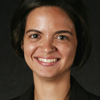
Batlle, an Ethics and Excellence in Journalism Foundation News21 fellow, is a student in the graduate program at the Walter Cronkite School of Journalism and Mass Communication at Arizona State University. She holds a bachelor’s degree in communication from Florida Gulf Coast University in Fort Myers, Fla., and has contributed reporting for the Naples Daily News in Naples, Fla. For News21, Batlle investigated felon disenfranchisement laws across the country.

Capper is a graduate of the S.I. Newhouse School of Public Communications at Syracuse University, where she majored in magazine journalism and art history. She was a senior editor at the student magazine, What the Health, and interned for Syracuse University Magazine. She also was a marketing communications intern for Corning, Inc. Her awards include the William Glavin Award for excellence in magazine writing and a Women’s Press Club of New York State award for writing and leadership. For News21, Capper reported on mail voting, absentee voting and voting technology.
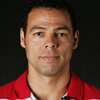
Carson is a graduate student in journalism at the Walter Cronkite School of Journalism and Mass Communication at Arizona State University. He also has a bachelor’s degree in communication studies from ASU. Carson has several years of experience in the music business as a promoter, producer and performer. For News21, he led a team that investigated alleged voter fraud.

Chen has a master’s degree in journalism with a concentration in photojournalism from the University of Texas-Austin. She is an award-winning visual journalist with a focus on documentary photography and film. She worked as the multimedia and picture intern at KUT News, the Austin, Texas, NPR affiliate, where she won an Associated Press award. Recently, she was a finalist for the Michael P. Smith documentary photo grant. For News21, Chen focused on telling the stories of Latino voters in the Southwest and contributed to the disenfranchised felon’s photo gallery.

Ciaglo is a graduate of the University of Oregon, where he majored in journalism with a focus on photography and multimedia storytelling. He served as the photo editor for the school newspaper, The Oregon Daily Emerald, and was on the photo staff for the student magazines, Ethos and Flux. He helped pioneer the first student iPad magazine, OR Magazine, and he interned as a photographer in Ghana at the Daily Guide newspaper. For News21, Ciaglo provided multimedia content for reports on Latino, felon and absentee voters.
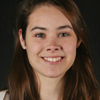
Cloos is a senior journalism major at Elon University in Elon, N.C., where she has served as a news editor for The Pendulum student newspaper. In 2012, she won a Mark of Excellence Award from the Society of Professional Journalists for her work at The Pendulum. She has interned at Al Jazeera English and The Washington Report on Middle East Affairs and was a 2009 Al Neuharth Free Spirit Journalism Scholar. For News21, Cloos examined voting rights in the South with a focus on voter photo ID laws.

Conley is a recent graduate of the University of Nebraska-Lincoln, where she majored in journalism and minored in Spanish. She has been an intern at the San Antonio Express-News, the Omaha World-Herald and the Philadelphia Inquirer. She has accepted a position teaching English at a grade school in Redondela, Spain, as part of a year-long program with the Spanish government. For News21, Conley explored election costs across the nation, new voting technology in Denver and felon voting rights in Pine Ridge, S.D.

Fitzpatrick, a Hearst Foundations News21 fellow, attends the Walter Cronkite School of Journalism and Mass Communication at Arizona State University, where he is completing a bachelor’s degree in journalism and a master’s degree in mass communication concurrently. He has reported for The Arizona Capitol Times in Phoenix and Treasure Coast Newspapers in Florida and is managing news editor of the Downtown Devil, a student-run news website in Phoenix. For News21, Fitzpatrick reported on student voting issues, voting rights in Arizona and voter identification laws.

Henke, a Hearst Foundations News21 fellow, is a graduate student at the Walter Cronkite School of Journalism and Mass Communication at Arizona State University. He holds a bachelor’s degree in broadcast journalism and communication studies from the University of St. Thomas in St. Paul, Minn., where he was the multimedia editor of the campus newspaper, co-directed KUST Radio and called play-by-play for Tommie Sports. He also interned at the NBC affiliate KARE 11 News in St. Paul. He will report for the Cronkite News Service in Washington, D.C., this fall. For News21, Henke reported on activist secretaries of state and their role in election administration.
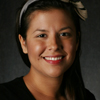
Khan, an Ethics and Excellence in Journalism Foundation News21 fellow, is a student in the graduate program at the Walter Cronkite School of Journalism and Mass Communication at Arizona State University, where she is specializing in multimedia coverage of border issues and politics. She is from Ann Arbor, Mich., and completed a bachelor’s degree in film and art history from Eastern Michigan University. As an undergraduate, she participated in a humanitarian trip to South Africa, which turned into nearly two years of traveling the country on the back of a motorcycle. For News21, Khan investigated alleged voting fraud and a national poll watcher training effort.

Knop holds a master’s degree in journalism from the Walter Cronkite School of Journalism and Mass Communication at Arizona State University. He runs his own photography business and has worked in print, radio and broadcast. His work has appeared in The Arizona Republic, the San Diego Union-Tribune and on KTVK-3TV. For News21, Knop reported on poll watching, felon disenfranchisement, voter fraud and provided overall visual support.
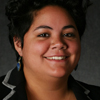
Lastra, an Ethics and Excellence in Journalism Foundation News21 fellow, is a recent graduate of the University of Oklahoma’s Gaylord College of Journalism and Mass Communication, where she majored in journalism and minored in German. She was a multimedia intern for the Moore Monitor in Moore, Okla., and served as multimedia chief for the OU student paper, the Oklahoma Daily. Lastra also was the managing editor of the “Oklahoma at War” project for Routes, a webzine produced by students in partnership with the Oklahoma Press Association. For News21, she focused on Latino voters in Texas and contributed multimedia for the project.

Magoc is a graduate student studying journalism at the University of Florida, where he also serves as a teaching assistant in the Center for Media Innovation and Research. A Pennsylvania native, he graduated in 2011 from Mercyhurst College in Erie, Pa., with a bachelor’s degree in communication. For News21, Magoc investigated voter registration issues in Florida and the national movement behind voter ID bills.

Nohr has a bachelor’s degree in journalism from the University of Nebraska-Lincoln. She has interned at the Yankton Daily Press and Dakotan newspaper in South Dakota and at the Omaha World-Herald in Nebraska, where she is now a member of the business reporting staff. For News21, Nohr focused on felon voting issues on South Dakota’s Pine Ridge Indian Reservation, the cost of elections and the role of activist secretaries of state.

O’Donnell is a senior at Elon University in Elon, N.C., majoring in print/online journalism and history. She is editor-in-chief of the student newspaper, The Pendulum, which has earned a national student press award. O’Donnell also has interned at The Post and Courier, South Carolina’s oldest daily newspaper, and worked as an international reporter for a school project in Geneva. She reported on the impact of South Carolina’s contested voter identification bill on minority voters for News21.

Persad, a Hearst Foundations News21 fellow, is a graduate student at the Walter Cronkite School of Journalism and Mass Communication at Arizona State University. She is from Trinidad and Tobago and graduated from the University of the West Indies in 2007 with a degree in communication studies. She has worked in video production for four years and will report for the Cronkite News Service in Washington, D.C., this fall. For News21, Persad focused on voting rights in Arizona and voter identification laws.

Remington is a 2013 candidate for a master’s degree in public policy with a focus on journalism at the Kennedy School of Government at Harvard University. He writes for Journalist’s Resource at the Kennedy School’s Shorenstein Center on the Press, Politics and Public Policy. He also contributes to the Nieman Foundation for Journalism’s lab blog, and he blogs about baseball for Fangraphs.com. For News21, Remington wrote about election-day registration in Maine, investigated voter fraud and researched a demographic profile of American voters.

Rumbaugh recently received her bachelor’s degree in journalism from the University of Florida. She has interned with The Detroit News and The Gainesville Sun, where she also worked as a contributing reporter for the business desk. She is the newest member of the business staff of The News-Press in Fort Myers, Fla. For News21, Rumbaugh focused on felon disenfranchisement policies in Florida and helped compile information for the voter fraud database.

Russell, an Ethics and Excellence in Journalism Foundation News21 fellow, is a summa cum laude graduate of the University of Oklahoma with degrees in political science and journalism. She has completed internships with the San Francisco Chronicle, the National Journal and CQ/Roll Call, in addition to being an editor for the Oklahoma Daily student publication and executive producer for the college’s sportscast. This fall, she is entering the University of Texas-Austin as a doctoral student. For News21, Russell helped create and manage the daily blog in addition to writing and reporting on Southwest voters and Texas election policy.
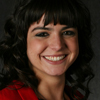
Ruta, an Ethics and Excellence in Journalism Foundation News21 fellow, is a student at the University of Oklahoma, where she is completing bachelor’s degrees in theater arts and journalism, with an emphasis on online journalism. She is campus editor at the Oklahoma Daily student newspaper and has been the life and arts editor as well as multimedia editor. She was the senior editor of the “Oklahoma at War” project for Routes, a webzine produced by students in partnership with the Oklahoma Press Association. For News21, Ruta reported on voting rights issues in Texas.

Skelton is a recent graduate of the University of Nebraska-Lincoln and holds a bachelor’s degree in journalism with concentrations in news editorial, political science and advertising. She has covered national news for Mashable and USA Today College. Skelton also has interned at the Arkansas Democrat-Gazette, the Omaha World-Herald and the Lincoln Journal Star. She reported on voter disenfranchisement, election law and voter technology for News21.

Straumsheim is a graduate student at the Philip Merrill College of Journalism at the University of Maryland, where he also served as an editorial assistant for the American Journalism Review. He graduated summa cum laude from LaGrange College in LaGrange, Ga., with a bachelor’s degree in English. For News21, Straumsheim investigated felon disenfranchisement laws in Virginia and Tennessee.

Vicens, an Ethics and Excellence in Journalism Foundation News21 fellow, is a graduate student at the Walter Cronkite School of Journalism and Mass Communication at Arizona State University. He returned to school after working for five years in newspapers, magazines, television, radio and on the Web. For News21, he investigated a multi-state poll watcher training effort and looked at voting machines by jurisdiction across the nation, probing whether the machines could be manipulated in an election.
Leadership Team
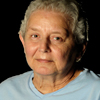
Rosenhause, retired managing editor of the South Florida Sun-Sentinel, is president of the Florida Center for Investigative Reporting. She previously was managing editor of the San Francisco Examiner and editor of the San Francisco Chronicle PM Edition and worked at the New York Daily News, the Los Angeles Times and the Bergen (N.J.) Record. A four-time Pulitzer Prize juror, Rosenhause was a visiting professor of ethics at the Walter Cronkite School of Journalism and Mass Communication at Arizona State University in 2009 and served as the managing editor of the 2011 News21 project on food safety in America.

Downie is the Cronkite School’s Weil Family Professor of Journalism and vice president-at-large for The Washington Post, where he served as executive editor from 1991 to 2008. He is a founder and board member of Investigative Reporters and Editors Inc. and chairman of the board of advisers of Kaiser Health News. During his 44 years at the Post, Downie was an investigative reporter, editor on the local and national news staffs, London correspondent and managing editor and helped supervise the newspaper’s Watergate coverage. He earned bachelor’s and master’s degrees at the Ohio State University. At the Cronkite School, Downie teaches the News21 seminar and an accountability journalism class.
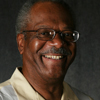
Jordan is associate professor in the Walter J. Lemke Department of Journalism at the University of Arkansas. Before joining the university in 1995, he worked at The Philadelphia Inquirer, first as a reporter and later as an assigning editor and editor of a suburban edition that reached about 110,000 readers. He also served as a Washington correspondent for the newspaper. Jordan also worked at The Kansas City Star and The Boston Globe, covering features and sports, writing editorials and serving as television and radio critic

Lindh is the Cronkite School Web master and instructional technology analyst. He built the school’s website and the site for Cronkite News, the school’s daily news website, and helps faculty and students use technology. He also has taught graphic design at the school. Prior to coming to ASU, he worked as a writer, programmer and system administrator.

Quester is a photojournalist and reporter who recently completed a master's degree at the Cronkite School. Previously, Quester spent five years working for various newspapers and journalism projects. He has focused on issues such as children living along the U.S.-Mexico border, U.S. soldiers serving in Kuwait and Iraq and street children living in Santo Domingo, Dominican Republic.

Long is a self-employed journalist, geographer and educator who specializes in spatial analysis, cartography and data visualization. His work has appeared in a variety of news organizations including ProPublica and MSNBC.com. He was previously a news artist for The Arizona Republic and the East Valley Tribune. Long teaches online media as an associate faculty member at the Cronkite School. He is a graduate of the School of Geographical Sciences and Urban Planning at ASU.

Doig holds the Knight Chair in Journalism at the Cronkite School, specializing in computer-assisted reporting. He had a 23-year career as a newspaper journalist, including 19 years at the Miami Herald. His investigative projects have won major journalism prizes, including the 1993 Pulitzer Prize Gold Medal for Public Service. Doig is a political science graduate of Dartmouth College. He also graduated from, and later taught at, the Defense Information School and spent a year as a combat correspondent for the U.S. Army during the Vietnam War.

Hill joined the Cronkite faculty in 2007 after nearly eight years at BET, where she was vice president for content for BET Interactive, the online unit of Black Entertainment Television and the most visited site specializing in African-American content on the Internet. Before joining BET, Hill was executive producer for special projects at washingtonpost.com. At the New Media Innovation Lab, Hill works with students from multiple disciplines, including journalism, to research and develop new media products for media companies. She is a graduate of Wayne State University.

Jamison is the lead developer for the New Media Innovation Lab at the Cronkite School, working with students to develop digital products and enterprises. He has 12 years of experience working in the technology field, starting with eCommerce at Bank of America. He also wrote simulations to forecast wholesale energy market prices for a small analytics company. He is especially interested in new and emerging technologies.

Yau is a recent graduate of ASU's Herberger Institute for Design and the Arts in Intermedia. A summa cum laude graduate of the honors college, she was a student in the Cronkite School’s New Media Innovation Lab and holds a certificate in computer game development. Her research into emotive gaming using neuro-technology has been accepted at conferences across the country. She is an animator, web designer and avid doodler and helped design and build the News21 website.

Crane directs the Cronkite School’s Washington operations, running the year-round bureau of Cronkite News Service and developing programs for D.C.-area professionals. A former Washington Times political reporter and editor, he previously ran the Capital News Service at the University of Maryland, where he was assistant dean of the Philip Merrill College of Journalism.

Gilger is associate dean in charge of professional programs for the Cronkite School and is the chief administrator of News21, which is headquartered at the school. She was previously director of Student Media at ASU, deputy managing editor for news at The Arizona Republic, managing editor of The Statesman Journal in Salem, Ore., and served in various editing positions at the Times-Picayune newspaper in New Orleans. Gilger holds bachelor’s and master’s degrees in journalism from the University of Nebraska.
More about News21
- Archives of previous investigations
- Join Our Team
- Free Content
- Carnegie Corporation
- Knight Foundation
- Main News21
For comments or feedback, email news@news21.com


